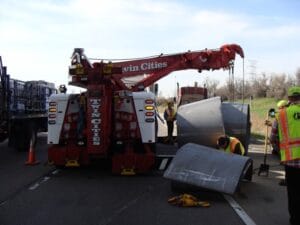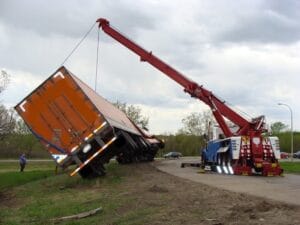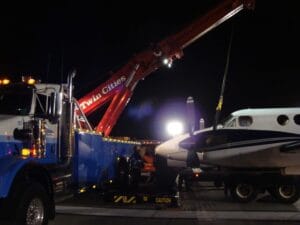Trucking on Knife’s Edge
A jackknife doesn’t ease in. It hits fast, hard, and without much warning. One moment, everything’s under control. The next, the trailer swings, the cab pivots, and everything locks up. It puts your rig at risk of accidents and endangers everyone else on the road. Cleanup can take hours. Costs stack up fast. If you’re behind the wheel of a rig, especially in unpredictable Minnesota weather, these five tips can help you stay in control and avoid needing our St. Paul semi towing service when your trailer decides to take the lead.
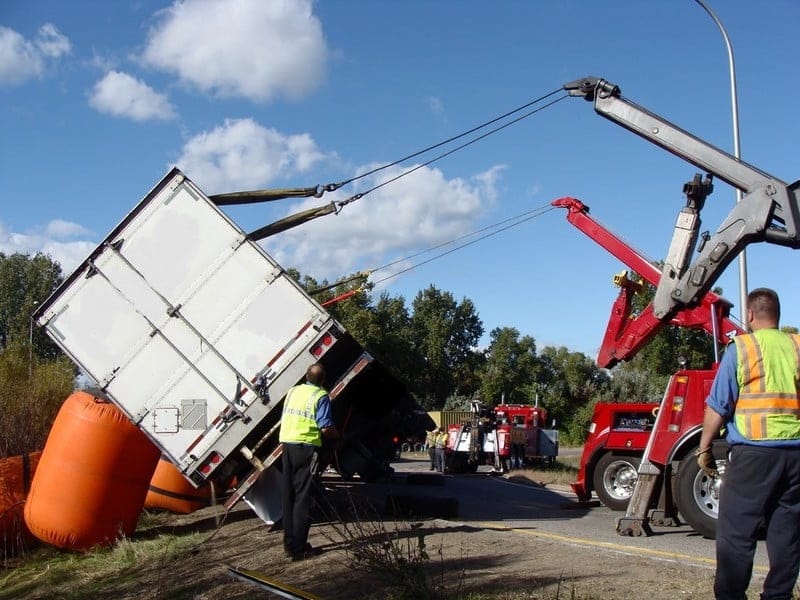
Tip 1: Know the Conditions Before You Roll
Jackknifes love surprise weather. Don’t give them the upper hand.
Icy patches, black ice stretches, and wet highways where traction vanishes without notice are ideal jackknife conditions.
Before heading out, make it routine to:
- Check weather forecasts not just at your start and end points but along your full route.
- Pay attention to DOT updates and traffic cameras if available.
- Add buffer time to your schedule to reduce pressure when roads get rough.
Tip 2: Keep Your Load Balanced
An uneven load can turn your trailer into a weapon.
Trailers can also jackknife on dry roads. No rain, no ice, just a high center of gravity or a badly secured load shifting at the wrong moment. It’s not always about speed. Sometimes it’s just physics doing what it does. And an unbalanced trailer makes your braking and turning unpredictable.
When loading, make sure:
- The weight is centered and evenly distributed.
- Top-heavy loads are avoided whenever possible.
- Cargo is properly secured with no room to slide or shift.
Tip 3: Brake Gradually, Brake Early
Slamming the brakes turns a minor slowdown into a full-blown jackknife. Harsh braking can be a trigger: the cab slows. The trailer doesn’t. Then it swings wide like a hammer on a chain. At that point, your options are gone.
Get in the habit of:
- Watching traffic several vehicles ahead so you can anticipate stops.
- Applying brakes gently and early rather than reacting last-minute.
- Using engine braking to maintain speed on hills or slick stretches.
Quick braking forces your trailer to react and not always in the way you want. Smooth control keeps you upright and out of trouble, avoiding the call to our St. Paul semi towing team.
Tip 4: Don’t Rush a Downhill
A downhill grade is where many jackknifes begin.
Speed picks up. Brakes heat up. You react a second too late, and the trailer pulls your cab where it wants to go. We’ve pulled more trucks from the bottom of icy slopes than the tops, and there’s a reason for that.
On a descent:
- Drop into the right gear early, don’t rely solely on brakes.
- Apply brakes in short, controlled bursts.
- Avoid turning the wheel while braking.
A little caution up top saves a lot of wreckage down below.
Tip 5: Stay Calm When It Gets Hairy
You feel the trailer twitch. Your gut says slam the brakes. Don’t. Panic feeds the jackknife. Once you overcorrect, oversteer, or overbrake, it’s already too late.
Train yourself to:
- Keep your hands loose on the wheel.
- Focus far ahead, not on what’s swinging in the mirror.
- Ride it out with steady input rather than jerky moves.
The most common mistake we see is a good driver reacting too fast and too hard. Trust your training. And remember: a calm response keeps you out of our next St. Paul semi towing run.
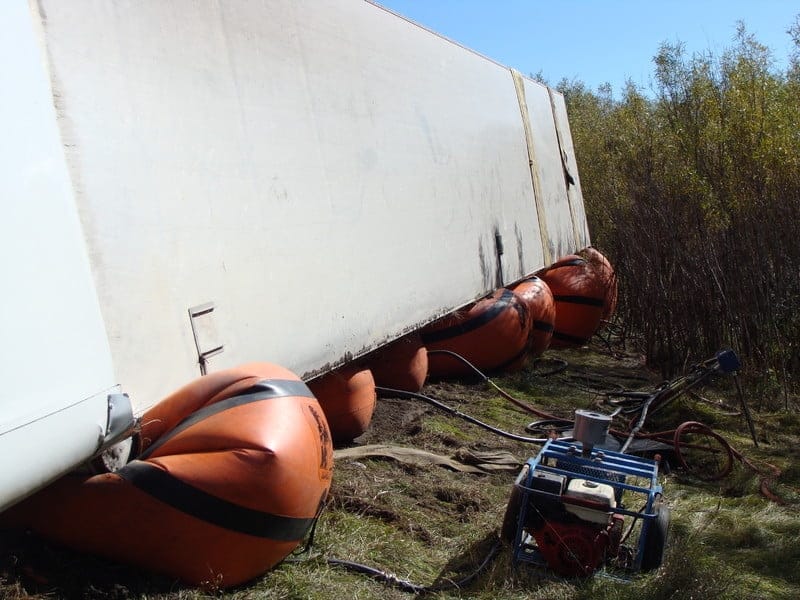
Twin Cities Transport & Recovery: St. Paul semi towing Backed by Real Road Experience
When a jackknife happens, the damage is real. The risk is high. Trailers can fold like paper, freight spilled across lanes, and rigs blocking rush-hour traffic. These aren’t just delays, but shutdowns that ripple through the entire system. That’s why we believe prevention starts with experience, and that experience drives every tip we’ve shared. Our St. Paul semi towing team has recovered rigs from some of the toughest scenes on Minnesota roads. And if things ever go wrong, know this: our St. Paul semi towing crew is ready. We’ve got the right St. Paul semi towing equipment, the experience, and the grit to handle the aftermath. But we’d rather see you rolling past us than calling us in a ditch.

